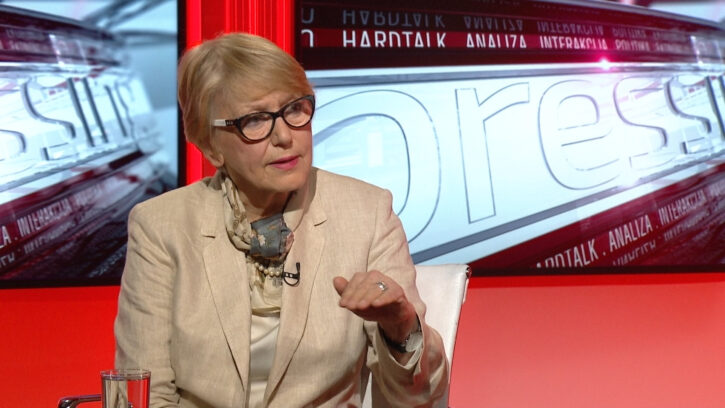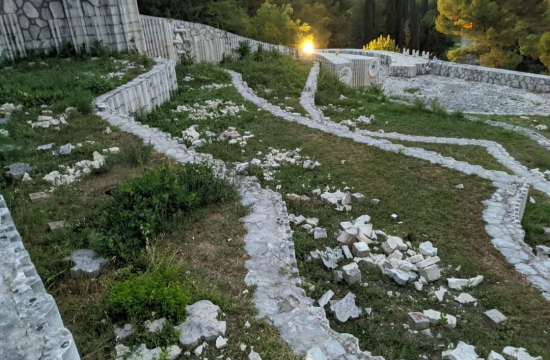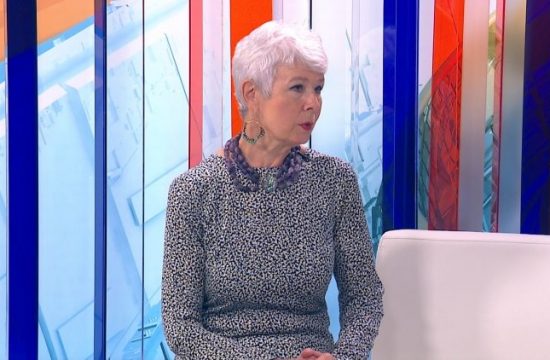
Bosnia and Herzegovina had to join NATO immediately after the 1995 Dayton Peace Agreement was signed, as this would have guaranteed its territorial integrity and wouldn't leave room for manipulations, Sonja Biserko of the Helsinki Committee for Human Rights in Serbia said in N1's current affairs programme Pressing.
“The whole Bosnia is blocked because of the NATO,” said Biserko, adding that Bosnian Serb leader Milorad Dodik is the one who disputes it.
“Bosnia and Herzegovina should have been accepted in the NATO immediately after the Dayton Agreement (a treaty which ended the 1992-95 Bosnian war) because that would have been the only guarantee for its territorial integrity and wouldn't leave room for politicians such as Dodik to manipulate with it,” she added.
According to her, Russia is using Serbia and Bosnia's Serb-majority entity, Republika Srpska, to prevent NATO expansion in the region and to delay the countries’ membership in the European Union (EU).
Dodik, who represents Republika Srpska and Bosnian Serbs in the State Presidency strongly objects the membership in NATO, following the stance of neighbourly Serbia on this matter.
To join the alliance, Bosnia would need the consent of its all three major ethnic groups (Bosniaks, Serbs and Croats) and its two semi-autonomous regions, Republika Srpska and Federation (FBiH).
“Serbia is surrounded by the NATO member states. Serbia is losing it out of sight that the Balkans is in the sphere of interest of the west. It is a matter of time when this scenario will be over,” Biserko stressed.
She deems that the situation got radical due to the international context and weak attention of the international community in the Balkans.
“The Balkans is being treated as unfinished business. Democratisation did not happen, capitalism didn't win but some sort of wild capitalism. Nationalist elites connive in order to keep themselves in power. People on these territories are hostages to those elites,” added Biserko.
EU is trying to do something but, according to her, it will take time, “and will require a new relation and a new policy towards the Western Balkans with focus on democratisation.”
Biserko is attending the History Fest in Bosnian capital city of Sarajevo which is, as she pointed out, an important event for the future of the region.
“I think it is encouraging to have manifestations like this one. There was a similar event in Zagreb and other cities of Croatia, attended by older and younger historians who started dealing with Yugoslavia in a different was,” she said adding that one of the messages conveyed from the gathering in Sarajevo was “we lost Yugoslavia, let's save Bosnia and Herzegovina.”
“Nationalists often say if Yugoslavia fell apart, the fall of Bosnia and Herzegovina cannot be avoided either. The fall of Yugoslavia did not solve the issues of a complex community. They are still open. We are captured states and societies. It is necessary to address the issues in an objective way, which would provide permanent solutions for this region. A security framework is necessary to guide these countries towards the normalisation of relations,” she said explaining the current situation in the region.
Speaking about the issue of Kosovo and possible solution in this region that declared independence from Serbia in 2008, which Serbia still disputes, neither a division, a swap of territories or declaring a frozen conflict would be good. It would be dangerous for the whole region.
She believes that Serbia had to recognise Kosovo's independence.
“I think it (Serbia) should have done it long ago and to be the first one to do it within current borders. That would make Serbia a serious actor in the region, It keeps saying it is the greatest, a stability factor, and this would be a move that would prove Serbia is ready to accept a new reality, to turn towards its own development and to take the region forward. The whole region suspects what Serbia wants, and that can be seen in its behaviour towards Kosovo, Bosnia, Croatia,” Biserko emphasised.




